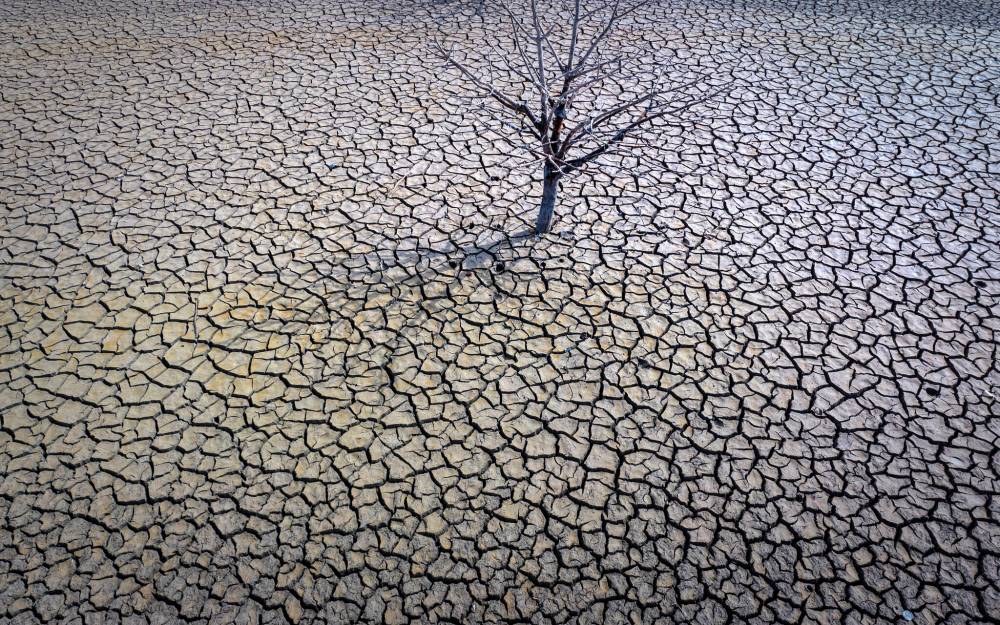Ambition needed to tackle climate crisis
Advertisement
Read this article for free:
or
Already have an account? Log in here »
To continue reading, please subscribe:
Monthly Digital Subscription
$0 for the first 4 weeks*
- Enjoy unlimited reading on winnipegfreepress.com
- Read the E-Edition, our digital replica newspaper
- Access News Break, our award-winning app
- Play interactive puzzles
*No charge for 4 weeks then price increases to the regular rate of $19.00 plus GST every four weeks. Offer available to new and qualified returning subscribers only. Cancel any time.
Monthly Digital Subscription
$4.75/week*
- Enjoy unlimited reading on winnipegfreepress.com
- Read the E-Edition, our digital replica newspaper
- Access News Break, our award-winning app
- Play interactive puzzles
*Billed as $19 plus GST every four weeks. Cancel any time.
To continue reading, please subscribe:
Add Free Press access to your Brandon Sun subscription for only an additional
$1 for the first 4 weeks*
*Your next subscription payment will increase by $1.00 and you will be charged $16.99 plus GST for four weeks. After four weeks, your payment will increase to $23.99 plus GST every four weeks.
Read unlimited articles for free today:
or
Already have an account? Log in here »
Hey there, time traveller!
This article was published 18/09/2023 (806 days ago), so information in it may no longer be current.
“Climate breakdown has begun.”
While those four words should come as no surprise, they signal a significant shift in human history. We are departing an era in which climatic conditions were relatively stable and predictable and we are entering an age in which volatility is the only guarantee.
Those four words were part of a statement issued recently by UN Secretary-General António Guterres in response to news that this summer was the hottest three months on Earth in recorded history.

Associated Press
Temperature records were broken globally in July and August, says the Copernicus Climate Change Service.
Temperature records were broken globally in July and August, according to data gathered by the Copernicus Climate Change Service. Last month was estimated to have been 1.5 C warmer than the pre-industrial average.
The correlation between record temperatures and extreme weather events is hard to miss. Canada is coming off its worst wildfire season yet, with more than 15 million hectares of land engulfed in flames so far. The effects were felt locally, with regularly poor air quality as a result of the far-reaching smoke.
This summer also saw an overactive hurricane season in North America, spurred on by record-breaking ocean temperatures. Just last week, Libya’s coastal city of Derna was hit by catastrophic flash flooding. More than 11,000 people have died and thousands remain missing.
The climate crisis is no longer nigh. It is here.
So, what does this mean for humanity?
For one, it doesn’t mean that all is lost.
While it’s not possible to halt climate change entirely — that ship has already sailed — it is still possible to avoid a worst-case scenario. Government and corporate action now will determine quality of life for generations to come.
The effects of climate change are clear. For decades, scientists have forecast how global warming will impact the environment. The fallout includes hotter temperatures, more severe storms, increased drought, rising ocean levels and greater species loss. For human beings, this translates to food insecurity, infrastructure failure, economic challenges, acute health risks and displacement.
While many of these issues are already at play, leaders need to get serious about cutting greenhouse gas emissions in order to mitigate further complications. It’s unacceptable to continue missing emission reduction targets. Green energy investments and effective climate policies are needed to incentivize reductions in the public and private sector.
One way or another, the climate crisis will require action. Municipal, provincial and federal governments are already dealing with the costly and deadly effects of environmental disasters made more extreme by a warming planet. Along with mitigation, adaptation and planning are key to a liveable future.
You don’t have to go far to see the benefits of progressive environmental adaptation.
Prior to the construction of the Red River Floodway, Winnipeg was subjected to severe cycles of flooding that displaced residents and damaged infrastructure. Premier Duff Roblin pushed the project through despite public and political opposition to its significant cost. It’s estimated the dike and its subsequent expansions has prevented billions of dollars in flood damage locally.
Manitoba’s current crop of politicians should take a page from the history books when designing climate policies for the future. A lofty vision can pay dividends in the long run.
Climate action and adaptation isn’t an individual burden. It’s a collective one that hinges on ambitious leadership.







